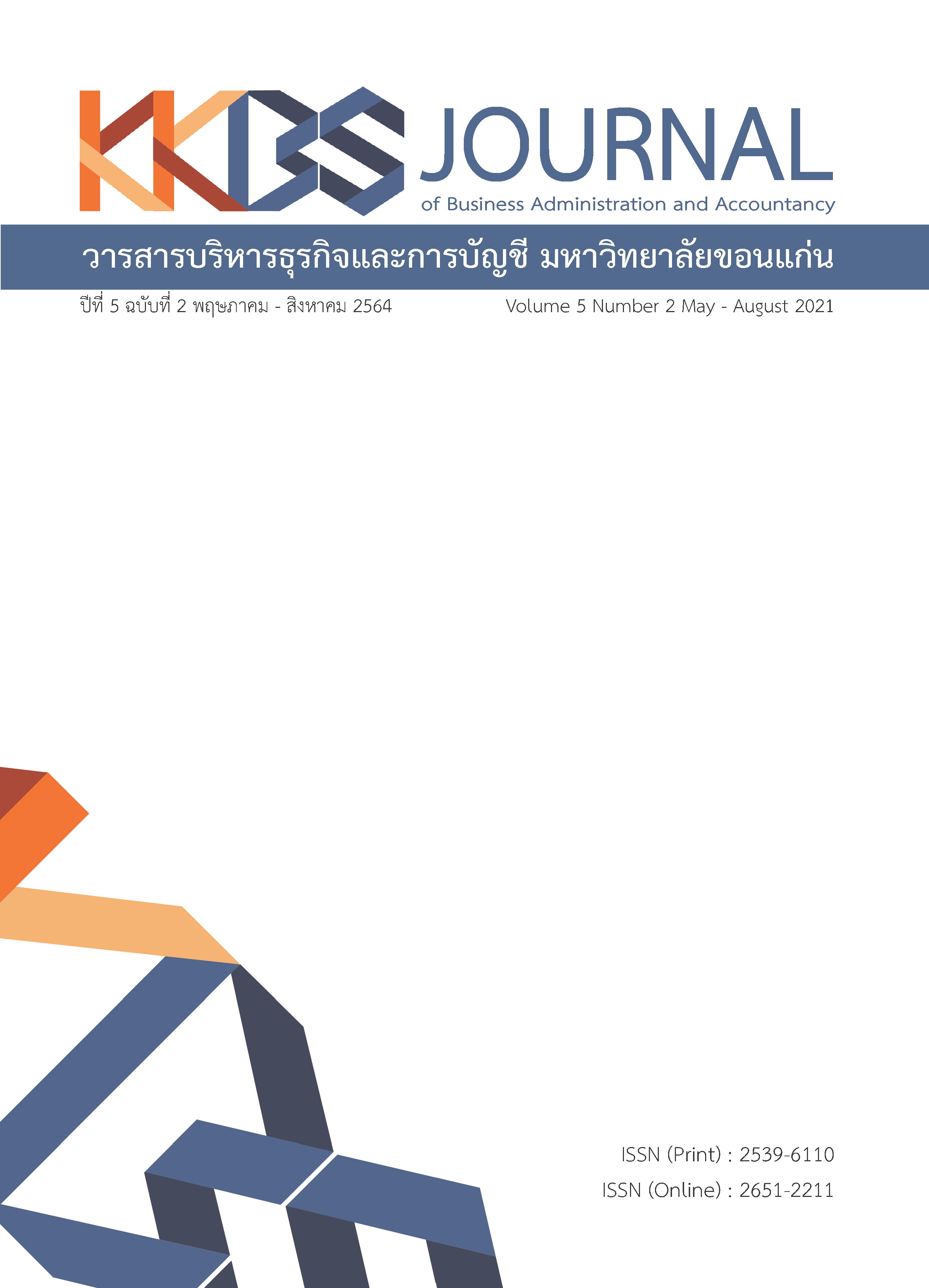Purchasing Behavior of Metrosexual Towards Men’s Facial Skin Care Cosmetic Product
Main Article Content
Abstract
This research aimed to study metrosexual’s purchasing behavior towards men’s facial skin care cosmetic, and to compare differences in behaviors between the high and low dandies. The survey method was applied by using questionnaires to collect data from 200 metrosexuals.Metrosexual identification was composed of two procedures, i.e. observation of 10 features’ personal characters and self-assessment form. Most respondents were single undergraduate students, aged between 18 and 23 years old. A majority of respondents bought or applied men’s facial skin care cosmetic products for normal nourishing facial skin. Their main favorite brand was Nivea for Men. They usually bought the products from convenience stores. The source of product information they used was online media. The main reason of purchasing or applying men’s facial skin care cosmetic products was that the products could rectify their facial skin problems. Their purchase frequency was once a month. They usually decided to buy the products by themselves when they ran out of the products on hand. Though they re-purchased the run-out products, which were highly satisfied, they were reluctant to introduce the products to others. When comparing behaviors of the high dandy with low dandy groups, it was found that there were only few differences in their behaviors.
Article Details
The articles published in the journals are the authors' opinions, not the opinion of the editorial team or administrative staff. The articles published is copyright of the Journal of Business Administration and Accounting, Khon Kaen University.
References
Bono, S. & Sharif, M.A.M. (2017). Origins of metrosexual: In the light of event. Global Business and Management Research: An International Journal, 9(1), 605-612.
Boutkaska, P.T. (2019). The influence of extrinsic and intrinsic motivation on the use of facial skin-care for males in Bangkok. ABAC Journal, 39(4), 50-69.
Changprayoon, P. (2014). The study of influencing between brand equity brand preference and purchase intention for men’s skin care of metrosexual consumers in Bangkok. Bangkok: Kasetsart University. (In Thai)
Chantapukdee, K., Thitilertdacha, N. & Thitipramot, N. (2012). Attitude on men cosmetics of metrosexual 20-40 years old in Bangkok. Chiang Rai: Mae Fah Luang University. (in Thai).
Chiu, C.L. et al. (2019). Metrosexual trend in facial care products: Analysis of factors that influence you Chinese men purchasing intention. Journal of Global Fashion Marketing, 10(4), 377-397.
Eucerin. (2017). Understanding differences of male and female skin. Retrieved February 9, 2018, from https://www.eucerin.co.th. (In Thai).
Hall, M., Gough, B. & Seymour-Smith, S. (2012). “I’m METRO, NOT Gay!”: A Discursive analysis of men’s accounts of makeup use on YouTube. The Journal of Men’s Studies, 20(3), 209-226.
Hall, M., Gough, B. & Seymour-Smith, S. (2013). Stake management in men’s online cosmetics testimonials. Psychology and Marketing, 30(3), 227-235.
Jantarut, W. (2011). Behavior of male consumers in Mueang Chiang Mai District toward buying facial skin care products. Chiang Mai: Chiang Mai University. (In Thai).
Klunklin, P. (2019). Marketing channels, logistics and supply chain. In Klunklin, P. & Roongruangsri, R. (Eds). Principle of marketing. (pp.143-164). 7th ed. Chiang Mai: Marketing Department, Chiang Mai University. (In Thai)
Kurniawan, A.W. et al. (2018). Metrosexual lifestyle and interpersonal relationships. Advances in Social Science, Education and Humanities Research, 260, 20-23.
Lokdhamaruksa, S. (2012). Attitude on men cosmetics of metrosexual 20-40 years old in Bangkok. Bangkok: Silpakorn University. (In Thai).
Lupang. (2020). Update value and trend of ‘beauty market’ in the era of (must be) beautiful under masks’. Retrieved July 10, 2020, from https://www.marketingoops.com. (In Thai).
Navaratana Na Ayudhya, T. (2019). Product. In Klunklin, P. & Roongruangsri, R. (Eds). Principle of marketing. (pp.100-125). 7th ed. Chiang Mai: Marketing Department, Chiang Mai University. (In Thai)
Nutsakarn, S. (2009). Metrosexual consumption culture among males working in Bangkok Metropolitan area. Bangkok: Chulalongkorn University. (In Thai)
Positioning. 2006. Metrosexual power. Retrieved February 20, 2018, from http://positioningmag.com. (In Thai)
Ramakrishnam, S. (2006). Fairness creams and the metrosexual: Analyzing the discourse of male sexuality as played out in the Indian media. International Journal of the Interdisciplinary Social Science, 1(3), 49-56.
Sai-tang, P. (2010). The cosmetics purchasing behaviors of metrosexuals in Bangkok metropolis. Bangkok: Ramkhamhaeng University. (In Thai)
Sereerut, S. (2009). Modern marketing management. Bangkok: Dhamasarn.
Sin, L.M. & Omar, B. (2020). The impact of Korean wave on Malaysian metrosexual grooming attitude and behavior: The moderating role of visual media consumption. Media Watch, 11(2), 263-280.
Souiden, N. & Diagne, M. Canadian and French men’s consumption of cosmetics: A comparison of their attitudes and motivations. Journal of Consumer Marketing, 26(2), 97-109.
Tantiprabha, P. (2019). Pricing. In Klunklin, P. & Roongruangsri, R. (Eds). Principle of marketing. (pp.126-142). 7th ed. Chiang Mai: Marketing Department, Chiang Mai University. (In Thai)
The Bangkok Insight Editorial Team. (2019). Reveal 10 notable businesses in 62 E-commerce’ is highly popular. Retrieved September 15, 2019, from https://www.thebangkokinsight.com/89388/ (In Thai)
Wetchasarn, K. (2006). Marketing research. Bangkok: Chulalongkorn University Printing. (In Thai)
Winij, W. (2019). Promotion and Integrated Marketing Communication. In Klunklin, P. & Roongruangsri, R. (Eds). Principle of marketing. (pp.165-187). 7th ed. Chiang Mai: Marketing Department, Chiang Mai University. (In Thai)


